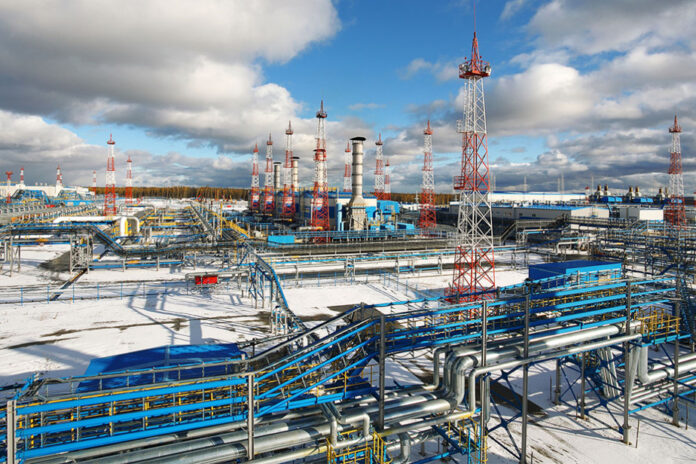Since Russia’s invasion of Ukraine, numbers written in red have been piling up about its natural gas exports: this vital sector for Russia is disintegrating.
Russian media estimate that pipeline exports could fall by 50% in volume in 2023 compared to 2022. And 2022 was already a particularly bad year.
It is not just the gas delivered by pipeline that is going badly. The European Union (EU) is threatening to cut imports of Russian liquefied gas, the only bright spot for Russian industry last year.
Russia has largely cut itself off from Europe, the main buyer of its natural gas, the one that paid on time and at a high price. By opening hostilities, then scaling back and manipulating supply, Russia scuttled the decades of effort that had allowed it to become the largest gas supplier to energy-hungry Europe, ceding that position to the Norway.
Last Thursday, Kremlin-linked media outlet Izvestia reported that pipeline exports could fall by 50% in 2023, citing a government forecast. This figure is close to some Western estimates.
Russia surprised by retaining its share of the oil market despite Western embargoes. But she had to agree to discounts which reduced her income.
On the other hand, it is very difficult to find new customers for gas, because most of it is delivered by gas pipelines. Russia has less capacity than the United States, Qatar and Australia to export liquefied natural gas (LNG), which can be transported by ship like oil.
Russian gas exports to the European Union via pipeline are expected to fall by two-thirds in 2023, estimates Viktor Katona, analyst at research firm Kpler. And this, after the 50% drop in 2022, the first year of the invasion.
Sales to China and possibly Turkey – which have become the main buyers of Russian gas – are expected to increase. Russia exports gas to China through a pipeline called Siberian Force and is looking to build another link. But at this point, China is only worth a fraction of the sales that were made to Europe before the war.
Europe’s strategy to wean itself off Russian gas has worked surprisingly well. The continent is importing more LNG, especially from the United States, and slashing demand. The EU has just announced that gas consumption from August 2022 to March 2023 has fallen by almost 18% compared to the average for these months from 2017 to 2022.
Europe survived what threatened to be a difficult winter without too much difficulty, which calmed the markets. The price of gas in Europe, which had jumped at the start of the war, has fallen by almost 90% from the peak of August 2022. These price cuts will also reduce the income from the gas that Moscow manages to sell.
Russian oil revenues are also melting, chipped away by Western-imposed price caps: they fell 29% (to $39 billion) in the first quarter of 2023 compared to the last three months of 2022, according to a published study. last Wednesday by the Kyiv School of Economics.
Building on this success, European leaders are considering extending sanctions to LNG imports from Russia.
Because while losing its gas pipeline exports, Moscow has greatly increased its LNG deliveries to Europe in 2022 (mainly from Sabetta, an Arctic port on the Yamal Peninsula in Siberia). Those exports to Europe set a record in February, according to consulting firm Rystad Energy.
But last month, EU Energy Commissioner Kadri Simson urged member countries and their energy companies to stop buying Russian LNG and “not sign new contracts with Russia”.
Some analysts doubt the EU is blocking Russian LNG: the main buyers of gas from the Siberian facility, Yamal LNG, are French oil giant TotalÉnergies and major Spanish energy company Naturgy.
“In our view, [blocking Russian LNG] would be a real headache for the European Union,” said James Waddell, division head, European Gas and Global LNG, at research firm Energy Aspects.
On the other hand, after having largely weaned itself off Russian gas delivered by pipeline, Europe could estimate that “doing without Russian LNG would hurt less”, observes Massimo Di Odoardo, vice president for gas at the consulting firm Wood. Mackenzie.





